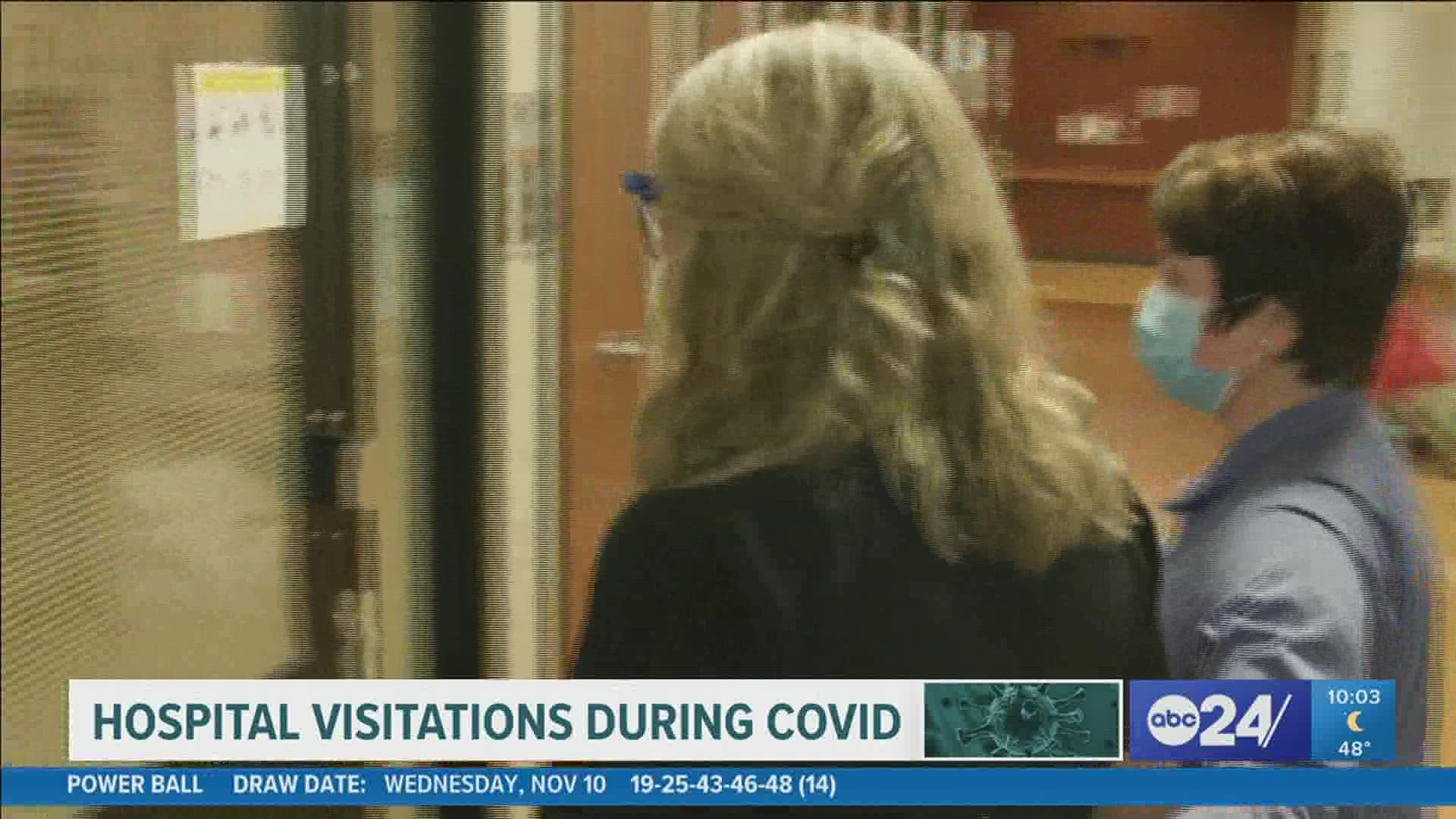MEMPHIS, Tenn. — A Tennessee bill would prohibit hospitals from restricting a dying Covid-19 patient at least one visitor.
The bill does not stop hospitals from requiring visitors to have health screenings or to adhere to safety measures while having their visit inside the hospital.
Gov. Bill Lee is expected to sign this into law on Friday.
Covid-19 has been a heartbreaking battle for healthcare workers and families who have lost loved ones to the virus. It's been a reality nearly half a dozen times for Casio Montez.
"If you would have saw them it would have given you some type of closure when they leave this Earth," Montez said. "It leaves you in a rock and a hard spot because the only thing you have now is the memories you had while you were with them, but you wanted to see them in their last days."
Montez said it was difficult for his family members and friends to accept they wouldn't have visitors before dying. He said this bill will help families grieve, but we need to be careful when we do visit our loved ones.
"You want to support your family in a time of need," Montez said. "You want to be there for them, but on the opposite end it’s kind of messed up because at the end of the day these people do have a disease or virus that is contagious."
Infectious disease specialist Dr. Stephen Threlkeld has been on the front lines of the pandemic and has seen some of the most painful moments.
"I can’t tell you the number of times I’ve had to watch tearful members of the healthcare team use their own cellphones to do FaceTime between patients and family members and many of those didn’t survive," Threlkeld said.
Visitation rules have varied from each hospital depending on how the pandemic is going. As experts have learned more about this virus, hospitals have been able to find safe ways for visitations.
"It’s important to point out that this is the most painful aspect I think of the pandemic to most healthcare workers," Threlkeld said. "It’s certainly the most painful to patients and families who’ve had so many loved ones die of this disease and they weren’t able to there."

